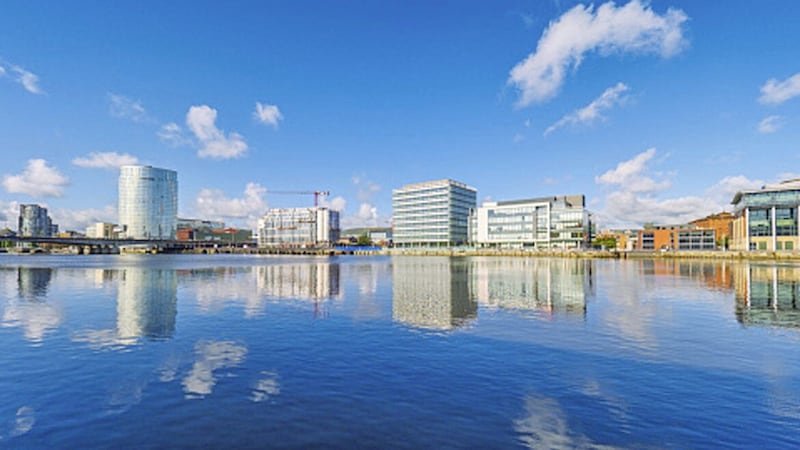BELFAST is the top ranking city in the devolved administrations, performing above the UK average for work-life balance, jobs, housing, transport, income distribution and safety, according to PwC’s Good Growth for Cities Index.
It ranks 50 of the UK’s largest cities, based on the public’s assessment of 12 economic measures, including jobs, health, income, safety and skills, as well as work-life balance, housing, travel-to-work times, income equality, high street shops, environment and business start-ups.
And Belfast ranks ninth of the 50 cities (one place down from last year), which above all other devolved cities.
The index shows Belfast is performing above or in line with the UK average across two thirds of measures. It scores above average for work-life balance, jobs, health, youth skills, house price to earnings, transport, income distribution and safety; and in line with the UK average for owner-occupation rates.
But it comes in below average for income, new businesses, adult skills, the environment and high streets.
READ MORE: Northern Ireland faces several years of low growth - Ulster University
The variable with the biggest improvement in its score in Belfast was work-life-balance, which improved significantly more than the UK average. On the other hand, health saw the biggest decrease in the city.
Belfast is expected to experience the highest rate of economic growth for all the cities located in devolved nations in the index, with a forecast of 0.23 per cent in 2023 and 1.00 per cent in 2024. This is higher than the UK wide average of 0.05 per cent growth this year and 0.99 per cent next year.
Belfast’s strong growth is primarily driven by the sectoral composition of the city’s economy. Generally, the city tends to have an above average share of its activity within some of the sectors that are expected to experience relatively strong growth in the next two years, while it also tends to have a below-average share of its activity within some of the sectors that are expected to perform poorly in the future.
Cat McCusker, regional market leader for PwC Northern Ireland, says: “It’s great to see Belfast continue to perform so well in the Good Growth for Cities Index.
“Our analysis shows people here are prioritising work-life balance more than in previous years as post-pandemic changes to working patterns allow people greater flexibility, greater control over working location and support better work-life balance. As a result, this is helping to unlock good growth.
“Belfast is also set to break away from the sluggish economic growth expected to be seen in most cities, along with London and Liverpool, as it is buoyed by relatively high-growth sectors. This strong growth is likely to drive growth across Northern Ireland as a whole.
“However, we must continue to focus on how we can maximise Belfast’s growth potential. A key part of our purpose is leading on some of the big issues and promoting the role of business in doing so, for example, addressing regional inequality and social mobility, achieving net zero, and investing in upskilling the workforce of the future.”








